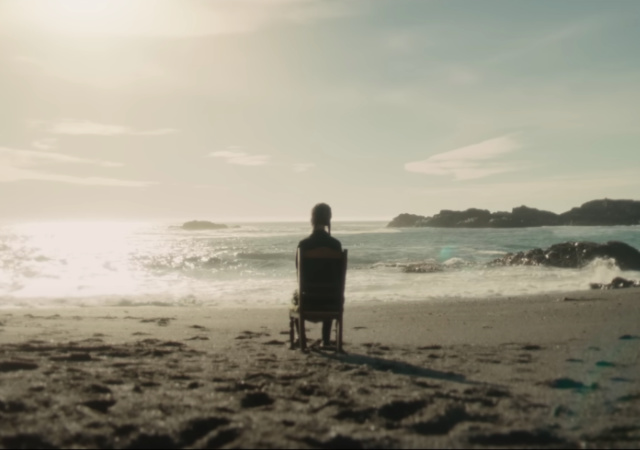Quebec Retailer Simons Tries to Normalize Assisted Suicide in Latest Ad Campaign

Simons released an ad earlier this month glamorizing and watering down assisted suicide in an ad.
The ad features Jennyfer Hatch, who used “medical assistance in dying (MAID) after dealing with complications and chronic pain associated with her diagnosis of Ehlers Danlos syndrome, a group of inherited disorders that affect the connective tissue supporting many body parts.”
In the ad, Hatch shared “her thoughts on life, death and her quest to fill her final days ‘with beauty, with nature and with connection.'”
Why would a fashion retailer do such a thing?
The CBC spoke to Peter Simons, chief merchant for the chain. I think these people didn’t thoroughly think through this idea:
Peter Simons, chief merchant for the fashion chain, says the documentary project started after meeting Hatch through the MAID program and travelling to Vancouver to talk about working on a unique film.”We really felt — after everything we’ve been through in the last two years and everyone’s been through — maybe it would resonate more to do a project that’s less commercially oriented and more focused on inspiration and values that we hold dear,” said Simons.Simons says he thinks customers will appreciate the unconventional move.”I learned early in my career not to underestimate our customers. They’re intelligent and they’re thoughtful and they want to engage in difficult conversations,” he said.”This isn’t about MAID, it’s really a story. It’s a celebration of Jennyfer’s life, and I think she has a lot to teach us.”
Couldn’t you have chosen someone else? Many of us have chronic illnesses that debilitate us to the point we can’t move. We try to find the good and beauty in life without committing suicide.
Euthanasia Laws
MAID isn’t just for people who are literally dying.
Even The Associated Press published a piece about experts showing concern for these euthanasia laws because it seems that anyone with a medical issue can choose MAID.
lan Nichols had a history of depression and other medical issues, but none were life-threatening. When the 61-year-old Canadian was hospitalized in June 2019 over fears he might be suicidal, he asked his brother to “bust him out” as soon as possible.Within a month, Nichols submitted a request to be euthanized and he was killed, despite concerns raised by his family and a nurse practitioner.His application for euthanasia listed only one health condition as the reason for his request to die: hearing loss.Nichols’ family reported the case to police and health authorities, arguing that he lacked the capacity to understand the process and was not suffering unbearably — among the requirements for euthanasia. They say he was not taking needed medication, wasn’t using the cochlear implant that helped him hear, and that hospital staffers improperly helped him request euthanasia.“Alan was basically put to death,” his brother Gary Nichols said.
Roger Foley told The New York Post that medical personnel at Victora Hospital, which receives most of its funding from the Canadian government, pressured him to die.
Foley has cerebellar ataxia, which “attacks the brains and muscles.” The disease has left Foley bedridden for six years. He needs help “to eat, wash and sit up.”
Foley doesn’t want to die:
“I’ve been pressured to do an assisted suicide,” he told The Post, alleging this happened with caretakers at Victoria Hospital, a primarily government-funded center in London, Ontario.“They asked if I want an assisted death. I don’t. I was told that I would be charged $1,800 per day [for hospital care]. I have $2 million worth of bills. Nurses here told me that I should end my life. That shocked me.”Foley’s claims to The Post echo his allegations in a lawsuit filed against Victoria Hospital Health Services Centre, among others, in which he claims that healthcare workers have pushed him to end his life.
Foley doesn’t have much family, so he’s pretty much alone. He went to Victoria Hospital after several other government health agencies provided care that “led to him being poisoned from spoiled food and dragged on the floor by workers.”
But at first, the Victoria Hospital didn’t give him the Hoyer Lift, which “hoists him into a sitting position and helps him maneuver around.” They didn’t even provide him with someone who could operate the machine because he couldn’t do it himself.
The lawsuit alleges “the defendants denying him food and water, and failing to provide him with the necessities of life and endangering his life [by] making him critically acidotic [a condition in which there is too much acid in bodily fluids].”
Foley sums up the euthanasia laws perfectly:
Said Foley: “There is pressure on [disabled] people who should be treated equally and celebrated for their strength and diversity and difference.“Society deems us better off dead. We have to justify being alive and [to pro-euthanasia contingents] our lives don’t matter.”
CLICK HERE FOR FULL VERSION OF THIS STORY